![Maria Voce: the culture of dialogue that enables peace]()
Mar 20, 2016 | Non categorizzato
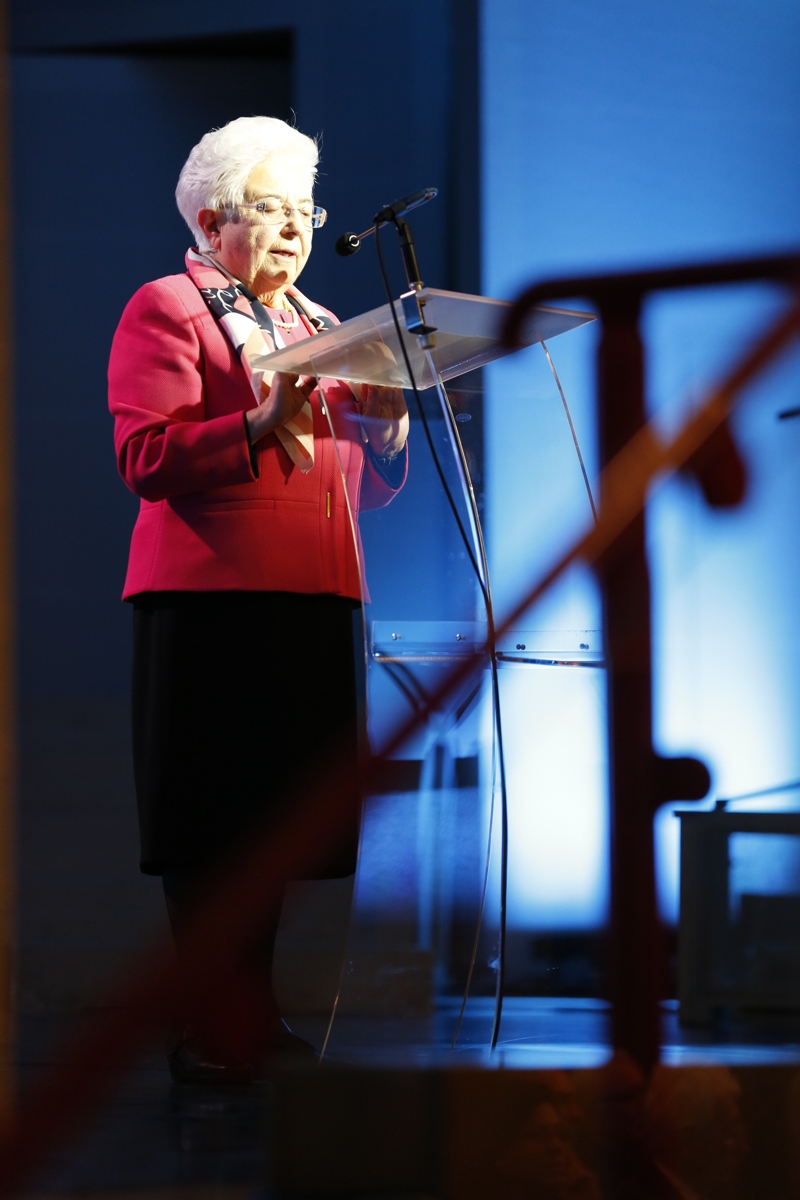 “What we wish to do today is not so much remember as to review together, after 20 years, the content and method which Chiara outlined at UNESCO on the 17th December 1996 on a subject which is more than ever relevant to international relations, education for peace. On that occasion UNESCO conferred on the founder of the Focolare Movement a special prize awarded to those whose work contributes to creating pathways and conditions whereby peace may become something real.” Maria Voce, the President of the Focolare, recalled that event in her talk given on 12th March at Castel Gandolfo, during the afternoon dedicated to Chiara Lubich and peace, in the presence of ambassadors and leading figures in the worlds of culture and Christian unity. “Looking at that occasion again today, it seems more than ever relevant: what could be more important than education to reach this kind of goal? Current affairs, what we see before us day after day, portray images of a peace that has been violated and often scorned. It seems almost as though, from the daily life of individuals right up to international level, “living in peace” is not part of what the generations living in the Third Millennium do. Yet how often do we appeal for peace or try to reconnect the broken strands of relationships among individuals, peoples and states? We cannot deny that we find it easier to put up barriers, perhaps thinking we are defending ourselves, instead of working to build unity in relations, among ideas, in politics, in economics and between religious viewpoints. Hence peace escapes us and is ever more distant. At UNESCO Headquarters, Chiara Lubich put forward a method for education to peace, the spirituality of unity, which is a new lifestyle that can overcome divisions among individuals, communities and peoples and so can help restore or consolidate peace.
“What we wish to do today is not so much remember as to review together, after 20 years, the content and method which Chiara outlined at UNESCO on the 17th December 1996 on a subject which is more than ever relevant to international relations, education for peace. On that occasion UNESCO conferred on the founder of the Focolare Movement a special prize awarded to those whose work contributes to creating pathways and conditions whereby peace may become something real.” Maria Voce, the President of the Focolare, recalled that event in her talk given on 12th March at Castel Gandolfo, during the afternoon dedicated to Chiara Lubich and peace, in the presence of ambassadors and leading figures in the worlds of culture and Christian unity. “Looking at that occasion again today, it seems more than ever relevant: what could be more important than education to reach this kind of goal? Current affairs, what we see before us day after day, portray images of a peace that has been violated and often scorned. It seems almost as though, from the daily life of individuals right up to international level, “living in peace” is not part of what the generations living in the Third Millennium do. Yet how often do we appeal for peace or try to reconnect the broken strands of relationships among individuals, peoples and states? We cannot deny that we find it easier to put up barriers, perhaps thinking we are defending ourselves, instead of working to build unity in relations, among ideas, in politics, in economics and between religious viewpoints. Hence peace escapes us and is ever more distant. At UNESCO Headquarters, Chiara Lubich put forward a method for education to peace, the spirituality of unity, which is a new lifestyle that can overcome divisions among individuals, communities and peoples and so can help restore or consolidate peace. 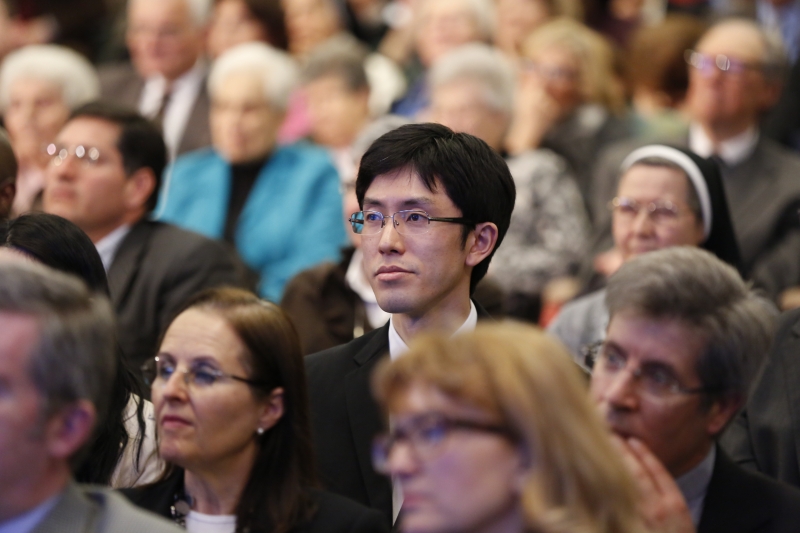 This spirituality is lived by people from very different backgrounds and experiences: Christians of different Churches, believers of different religions and people of different cultures. All of them are motivated by wanting to enable humankind become one single family; all know they must face problems and situations that arise daily at every level and in every field; all are directed towards being – at least wherever they are – and I quote Chiara “seeds of a new people, of a world at peace, with greater solidarity especially towards the least and the poorest; to be seeds of a more united world” (Chiara Lubich’s talk at UNESCO, 17.12.1996) in which it will be possible not only to call one another brothers and sisters but truly be so. If this is the method, what is the secret of its success? It is a secret which Chiara herself defined as the art of loving, which is “It means being the first to love, without expecting the other person to love us in return. It means knowing how to ‘make ourselves one’ with others, that is, to identify with their burdens, their thoughts, their sufferings, their joys. But, if this love of neighbour is lived out by more than one person, it becomes mutual. (Ibid.). Reciprocity: it is a word which carries much weight in international relations but is often limited to ensuring a truce in conflicts, not in preventing them or resolving them. Those who have responsibility and key roles in the international community know very well how difficult negotiations can be and how many obstacles are encountered before reaching agreements that satisfy all parties. To consider love as a negotiating tool in regard to the great objective of peace would allow us to feel part of one family, to live an authentic dimension of fraternity without restricting it merely to coexistence or forced shared living, but enabling fraternity to be open to the needs of the weakest and the poorest, of those who are excluded from political engagement or from a type of economics whose only law is profit. We need to love, then, and work for others and with others; so as to help overcome the barriers posed by conflicting interests, by a show of power, by inequality in levels of development, or lack of access to the market or technology. When speaking about peace education we find ourselves facing the great challenge of applying a method, that of unity as the fruit of mutual love, in the fragmented context currently enveloping almost all spheres of our daily life. Chiara Lubich was aware of this and for this reason offered the Representatives of Member States at UNESCO almost the key for a step change, a good practice, in the language used in international relations. In fact she said: «Nothing good, useful, or fruitful can be accomplished in the world without accepting troubles, suffering, in a word, without the cross.” (Ibid.). Commitment to peace is difficult to achieve if we are not ready to set aside our certainties and our comfort, so as to set out on new and unexplored paths; becoming creative without improvising; hearing to the voices of those who call for peace and identifying places where it can actually be achieved. … Twenty years ago, speaking at UNESCO, Chiara pointed out that love was “the most powerful instrument that can give humanity its highest dignity: that of feeling not so much that we are a collection of peoples, alongside one another and often in conflict with one another, but instead that we are one single people.” Today too even though we face many recurring difficulties, this is the ideal we wish to achieve through everyone’s contribution.”
This spirituality is lived by people from very different backgrounds and experiences: Christians of different Churches, believers of different religions and people of different cultures. All of them are motivated by wanting to enable humankind become one single family; all know they must face problems and situations that arise daily at every level and in every field; all are directed towards being – at least wherever they are – and I quote Chiara “seeds of a new people, of a world at peace, with greater solidarity especially towards the least and the poorest; to be seeds of a more united world” (Chiara Lubich’s talk at UNESCO, 17.12.1996) in which it will be possible not only to call one another brothers and sisters but truly be so. If this is the method, what is the secret of its success? It is a secret which Chiara herself defined as the art of loving, which is “It means being the first to love, without expecting the other person to love us in return. It means knowing how to ‘make ourselves one’ with others, that is, to identify with their burdens, their thoughts, their sufferings, their joys. But, if this love of neighbour is lived out by more than one person, it becomes mutual. (Ibid.). Reciprocity: it is a word which carries much weight in international relations but is often limited to ensuring a truce in conflicts, not in preventing them or resolving them. Those who have responsibility and key roles in the international community know very well how difficult negotiations can be and how many obstacles are encountered before reaching agreements that satisfy all parties. To consider love as a negotiating tool in regard to the great objective of peace would allow us to feel part of one family, to live an authentic dimension of fraternity without restricting it merely to coexistence or forced shared living, but enabling fraternity to be open to the needs of the weakest and the poorest, of those who are excluded from political engagement or from a type of economics whose only law is profit. We need to love, then, and work for others and with others; so as to help overcome the barriers posed by conflicting interests, by a show of power, by inequality in levels of development, or lack of access to the market or technology. When speaking about peace education we find ourselves facing the great challenge of applying a method, that of unity as the fruit of mutual love, in the fragmented context currently enveloping almost all spheres of our daily life. Chiara Lubich was aware of this and for this reason offered the Representatives of Member States at UNESCO almost the key for a step change, a good practice, in the language used in international relations. In fact she said: «Nothing good, useful, or fruitful can be accomplished in the world without accepting troubles, suffering, in a word, without the cross.” (Ibid.). Commitment to peace is difficult to achieve if we are not ready to set aside our certainties and our comfort, so as to set out on new and unexplored paths; becoming creative without improvising; hearing to the voices of those who call for peace and identifying places where it can actually be achieved. … Twenty years ago, speaking at UNESCO, Chiara pointed out that love was “the most powerful instrument that can give humanity its highest dignity: that of feeling not so much that we are a collection of peoples, alongside one another and often in conflict with one another, but instead that we are one single people.” Today too even though we face many recurring difficulties, this is the ideal we wish to achieve through everyone’s contribution.”
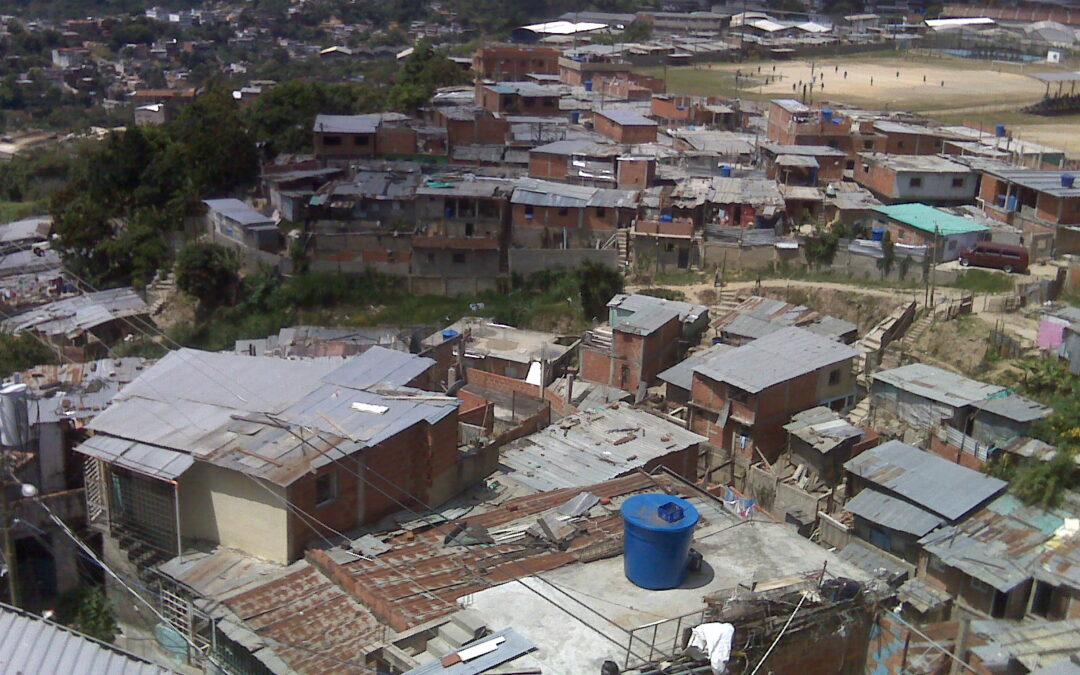
Mar 19, 2016 | Focolare Worldwide, Senza categoria
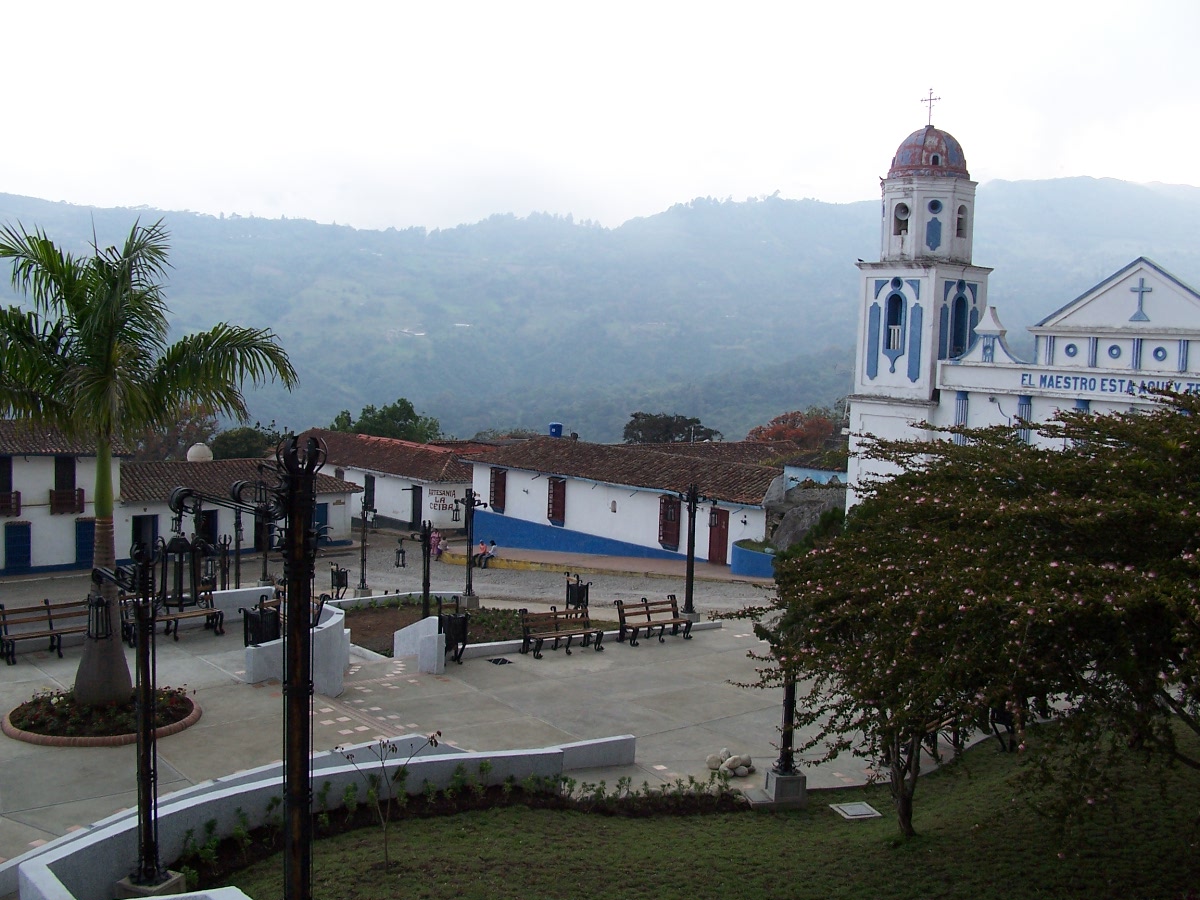 “In such a fractured and divided Venezuela we want to live the Gospel radically, wherever we work, or study, to build bridges of unity and peace. In the town council for example, there are 3 people who live the spirituality of unity, one belonging to the Government’s party and 2 in the opposing parties, and yet they respect and help one another.” One of them Ophelia, of the Focolare community speaks about a marginal district of the city of Valencia called Colinas de Guacamaya “A friend of mine asked me to accompany her to the doctor’s – she said and so the long waiting line started for the medicine: an old man in search of his treatment for diabetes, another asking for headache pills, a boy at the drug store asking for a painkiller. Just one pill, but he didn’t have enough money to pay for it.” But Ofelia had a bag of medicine in her car which she always brings along with her, with medicines that arrived from “Divine Providence”, as she herself recounts, and could offer them for free to all those who were there. The looks on their faces were of incredulity and gratitude. Betty and Orlando have 4 kids and they transferred to the “Little Cloud” Mariapolis Centre,in the district of Junquito, close to Caracas. “To serve those in need– Betty recounts –, we had lost touch with some members of the community so we organized the social pastoral. We wanted to respond to the need of food, clothing and homes for some families of the parish. So with the help of the town council, we managed to build a house fit to host a poor elderly man.” “The current social crisis, with the high in security indices the country is beset with, opened our hearts even more to the needs of the families in our community who live in fear of even losing their lives. We found out about a boy’s father who was in serious conditions due to a gunshot wound. in his head. We rushed to the hospital where he was admitted at the intensive care and died a few days later. We are now continuing to give our concrete love, with care and attention to protect the mother and son, whom we took in with us.”
“In such a fractured and divided Venezuela we want to live the Gospel radically, wherever we work, or study, to build bridges of unity and peace. In the town council for example, there are 3 people who live the spirituality of unity, one belonging to the Government’s party and 2 in the opposing parties, and yet they respect and help one another.” One of them Ophelia, of the Focolare community speaks about a marginal district of the city of Valencia called Colinas de Guacamaya “A friend of mine asked me to accompany her to the doctor’s – she said and so the long waiting line started for the medicine: an old man in search of his treatment for diabetes, another asking for headache pills, a boy at the drug store asking for a painkiller. Just one pill, but he didn’t have enough money to pay for it.” But Ofelia had a bag of medicine in her car which she always brings along with her, with medicines that arrived from “Divine Providence”, as she herself recounts, and could offer them for free to all those who were there. The looks on their faces were of incredulity and gratitude. Betty and Orlando have 4 kids and they transferred to the “Little Cloud” Mariapolis Centre,in the district of Junquito, close to Caracas. “To serve those in need– Betty recounts –, we had lost touch with some members of the community so we organized the social pastoral. We wanted to respond to the need of food, clothing and homes for some families of the parish. So with the help of the town council, we managed to build a house fit to host a poor elderly man.” “The current social crisis, with the high in security indices the country is beset with, opened our hearts even more to the needs of the families in our community who live in fear of even losing their lives. We found out about a boy’s father who was in serious conditions due to a gunshot wound. in his head. We rushed to the hospital where he was admitted at the intensive care and died a few days later. We are now continuing to give our concrete love, with care and attention to protect the mother and son, whom we took in with us.”  “Upon the request of the parish priest – María Carolina of the Junquito community recounts – we went to a rural zone that can be reached only by jeep. The Florida community were waiting for us, and in need of so many material things, and up to a few months earlier did not even have electricity. A community of sacrificed people, dedicated to farming and who walk kilometres to go to Mass once a month. An experience that involved all of us and which started up a communion of goods: from all over clothes, medicine, toys, shoes, food arrived… with trucks filled to the brim with goods but above all, hope, and love for this community. Even if difficulties are not missing, upon our arrival the people came out of their homes, running to meet us with applause, immediately imbuing a family atmosphere!.” The community of Puerto Ayacucho, in the State of Amazzona, is a border zone, inhabited by aborigine communities. They were beset with serious problems: the presence of guerillas, the exploitation of gold, a high rate of single mothers. It had just undergone a painful experience with the death of a boy, Felipe, a member of the Focolare, who had been killed two months earlier by gunshots. This is a frequent event in Venezuela, especially in this region. He had died to save the life of his brother who was wanted by the guerilla. Juan,his best friend, told us that «Felipe had set an appointment to enrol in the catechism class, but he died the day before… Together we had planned a lot for the future.» Felipe’s death had left a mark in this community: a new commitment to live to build peace, give new horizons and hope especially to the youth.
“Upon the request of the parish priest – María Carolina of the Junquito community recounts – we went to a rural zone that can be reached only by jeep. The Florida community were waiting for us, and in need of so many material things, and up to a few months earlier did not even have electricity. A community of sacrificed people, dedicated to farming and who walk kilometres to go to Mass once a month. An experience that involved all of us and which started up a communion of goods: from all over clothes, medicine, toys, shoes, food arrived… with trucks filled to the brim with goods but above all, hope, and love for this community. Even if difficulties are not missing, upon our arrival the people came out of their homes, running to meet us with applause, immediately imbuing a family atmosphere!.” The community of Puerto Ayacucho, in the State of Amazzona, is a border zone, inhabited by aborigine communities. They were beset with serious problems: the presence of guerillas, the exploitation of gold, a high rate of single mothers. It had just undergone a painful experience with the death of a boy, Felipe, a member of the Focolare, who had been killed two months earlier by gunshots. This is a frequent event in Venezuela, especially in this region. He had died to save the life of his brother who was wanted by the guerilla. Juan,his best friend, told us that «Felipe had set an appointment to enrol in the catechism class, but he died the day before… Together we had planned a lot for the future.» Felipe’s death had left a mark in this community: a new commitment to live to build peace, give new horizons and hope especially to the youth.
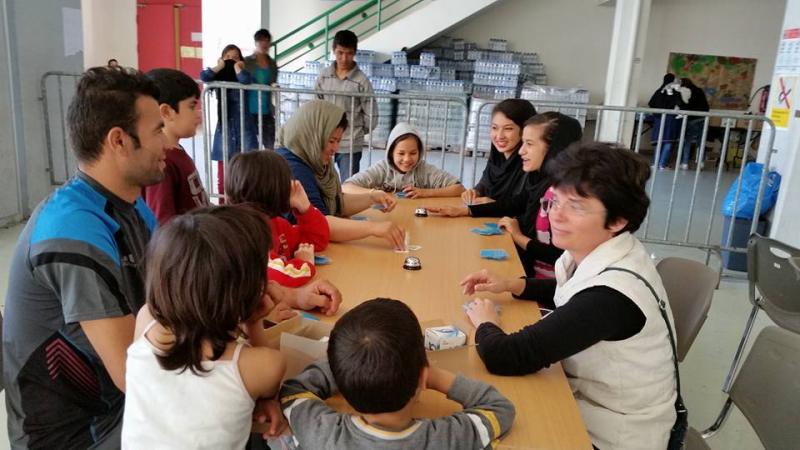
Mar 18, 2016 | Focolare Worldwide
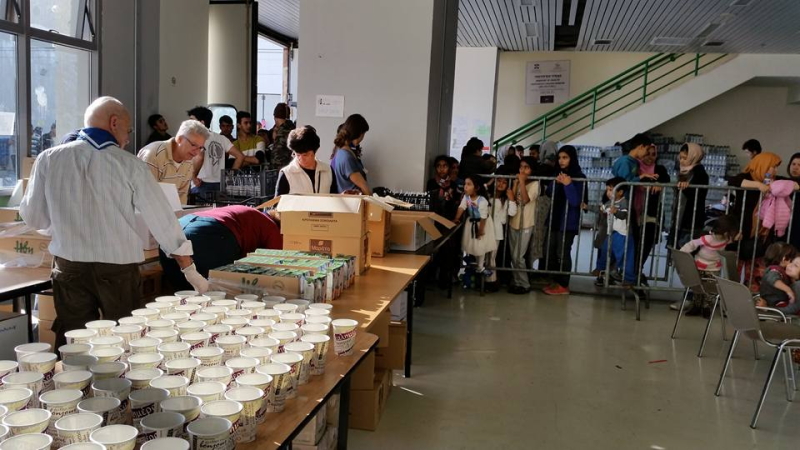 The flow of refugees has not stopped for months. They are living in a state of emergency on the islands of Lesbo, Kos, in Athens and in Idomeni. There are many secular and religious associations – Orthodox, Catholic, Protestant – and the NGOs that have never ceased to be there with help and assistance for these suffering people. The local community of the Focolare Movement, although small, both in Athens and in Salonica (Greece) has opened its arms and heart collaborating with several associations, including Caritas, The Pope John XXIII Community and others.
The flow of refugees has not stopped for months. They are living in a state of emergency on the islands of Lesbo, Kos, in Athens and in Idomeni. There are many secular and religious associations – Orthodox, Catholic, Protestant – and the NGOs that have never ceased to be there with help and assistance for these suffering people. The local community of the Focolare Movement, although small, both in Athens and in Salonica (Greece) has opened its arms and heart collaborating with several associations, including Caritas, The Pope John XXIII Community and others. 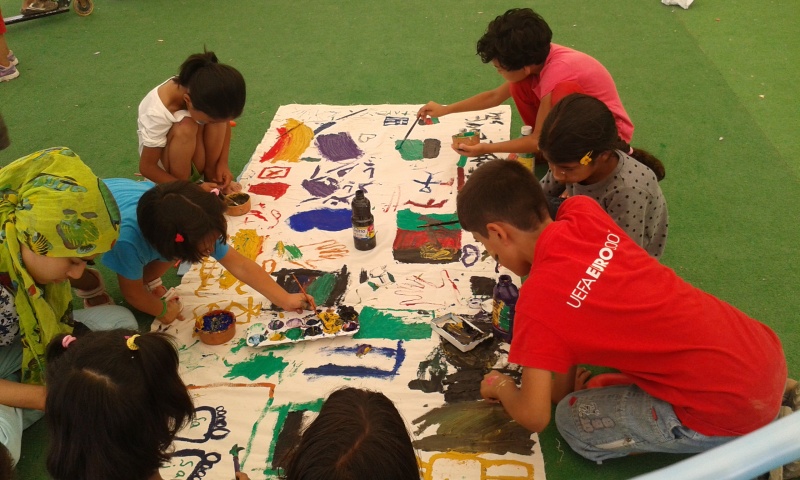 “Particularly in Athens,” they write, “we went to several refugee camps that are opened and closed according to the influx of arrivals. We have involved friends and colleagues in a food and clothing collection campaign to distribute to the different welcoming centres. From Salonica every week a group from the Focolare community in collaboration with Caritas, travels to the outskirts of Macedonia with relief and emergency aid.” “I went with some of my friends and colleagues from work to one camp where between 500 and 1000 people arrive each day,’ writes Mariangela from the focolare in Athens. “We help with the distribution of the meals, the sorting and mending clothing and play with the many, many children. We’d want to be able to say something to them, to share their burdens, but the language prevents us. The only way for us to communicate is with a smile, a caress and concrete deeds. In the end you feel like you’re able break through. It all seems so little in this sea of desperation, but we try to give at least one drop of love.”
“Particularly in Athens,” they write, “we went to several refugee camps that are opened and closed according to the influx of arrivals. We have involved friends and colleagues in a food and clothing collection campaign to distribute to the different welcoming centres. From Salonica every week a group from the Focolare community in collaboration with Caritas, travels to the outskirts of Macedonia with relief and emergency aid.” “I went with some of my friends and colleagues from work to one camp where between 500 and 1000 people arrive each day,’ writes Mariangela from the focolare in Athens. “We help with the distribution of the meals, the sorting and mending clothing and play with the many, many children. We’d want to be able to say something to them, to share their burdens, but the language prevents us. The only way for us to communicate is with a smile, a caress and concrete deeds. In the end you feel like you’re able break through. It all seems so little in this sea of desperation, but we try to give at least one drop of love.”  Maristella Tsamatropoulou, works on the National Greek Caritas Team: “The current refugee crisis doesn’t but expand the landscape of assistance that Caritas already began, to alleviate the Greek socio-economic crisis.” She explains, “It’s a matter of humanitarian aid that sees to the distribution of meals, of basic needs, both on the islands where the mass gatherings require it. . . but then the hospitality in hotels where there are the very important child care workers with their programmes for children, psychologists and the possibility to bathe. The different programmes that are structured and supported through foreign financing would never be able to carry out their work without the chain of solidarity that involves the efforts of so many volunteers on the front lines and on the back lines (the ones who make the appeals and collect the items).” At a pastry shop bar in Syros, the owners have involved their customers in gestures of solidarity such as collecting medicines, clothing and food, along with “A coffee waiting. . .” deal that allows you to leave a coffee for someone who is unable to pay. At Christmas, 235 people arrived! Some bread shops have begun “a loaf of bread waiting” in their businesses. “We’re so struck by the generosity and solidarity of the people,” they write from the Focolare community. “In spite of the serious financial crisis, the Greek people are pulling out all of their fraternal power, towards the poorest, finding unexpected energy and crativity to lift up so many people. It’s a true lesson in being human!”
Maristella Tsamatropoulou, works on the National Greek Caritas Team: “The current refugee crisis doesn’t but expand the landscape of assistance that Caritas already began, to alleviate the Greek socio-economic crisis.” She explains, “It’s a matter of humanitarian aid that sees to the distribution of meals, of basic needs, both on the islands where the mass gatherings require it. . . but then the hospitality in hotels where there are the very important child care workers with their programmes for children, psychologists and the possibility to bathe. The different programmes that are structured and supported through foreign financing would never be able to carry out their work without the chain of solidarity that involves the efforts of so many volunteers on the front lines and on the back lines (the ones who make the appeals and collect the items).” At a pastry shop bar in Syros, the owners have involved their customers in gestures of solidarity such as collecting medicines, clothing and food, along with “A coffee waiting. . .” deal that allows you to leave a coffee for someone who is unable to pay. At Christmas, 235 people arrived! Some bread shops have begun “a loaf of bread waiting” in their businesses. “We’re so struck by the generosity and solidarity of the people,” they write from the Focolare community. “In spite of the serious financial crisis, the Greek people are pulling out all of their fraternal power, towards the poorest, finding unexpected energy and crativity to lift up so many people. It’s a true lesson in being human!”
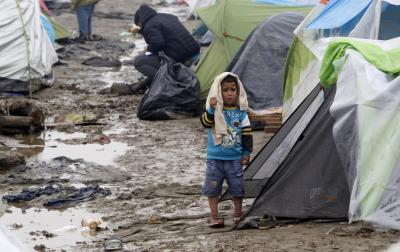
Mar 18, 2016 | Focolare Worldwide
 Thousands of refugees with hopes of crossing the Greek border live under tents in mud. The “mirage” is to reach Europe. Dolores Poletto is Croation. She works twice a week with Caritas Macedonia and lives in the focolare community in Skopje. She reports what she saw along the border. “I was at the refugee camp in Gevgelija, Macedonia with some colleagues from Caritas. It was an informal visit. On the other side of the border was a sea of people. We also crossed the border between Greece and Macedonia.” Closed Borders. The humanitarian crisis that refugees are enduring in Greece, Macedonia and Serbia is the result of the closing of border crossings along the Balkans migration route. On March 9, Slovenian authorities closed the border. Croatia has also announced that it will close its border and Serbia immediately announced the same. According to the most recent data – but the numbers are estimates – there are now some 14 thousand refugees at the Macedonian border. In Greece there are more than 34 thousand. Idomeni is like a funnel. The same thing is happening here that we have seen happening for months in Calais at the French border on the English Channel. The migrants arrive after having crossed through Greece and the Aegean on overloaded boats. “A multitude of people,” Dolores says. “They arrive in very poor condition . . . We’re on the border where before they crossed into Macedonia. People want to be as close as possible, so curtains have been put up behind the railway station.” Along with the mud, there is also the cold. “The daytime temperature is comfortable, rising as high as 18 degrees (C), but in the evening it drops to 2-3 degrees.” Living conditions in the camp deteriorate daily. Along with the cold, food is scarce and hygienic conditions are appalling. Many stand in line waiting for food,” Dolores says. “It’s hard to describe what their psychological state is like under such conditions. Many say that they’re from Syria. All of them would like to go to Germany, Austria . . . They have only one question for us: “When will the border open?” They’re prepared to do anything, so long as they reach their goal . . . ready even to die. “You know, I just heard news of 3 refugees who starved to death trying to cross illegally between Macedonia and Greece. This is so sad.” Caritas has been on the scene since the beginning, along with many other NGOs. “They’re waiting, hoping to cross the border,” Dolores explains. “That’s why they don’t want to move to more suitable camps. It’s difficult to help them.” The border police are here ensuring that no one crosses the border, in accordance with agreements made with Europe. When faced with this “impasse . . . you feel completely helpless.” Dolores has been deeply affected by this experience on the border. “We can stay with them on the Cross; I’m not able to forget those images. There are quite a few journalists there. I spoke with several of them and returned home to watch the news reports on TV. I said that if I had watched them without having visited that place, they would only have only been another series of daily news reports, but now after having touched it with my own hands, it feels more like a live wound on humanity’s body.” Source: SIR
Thousands of refugees with hopes of crossing the Greek border live under tents in mud. The “mirage” is to reach Europe. Dolores Poletto is Croation. She works twice a week with Caritas Macedonia and lives in the focolare community in Skopje. She reports what she saw along the border. “I was at the refugee camp in Gevgelija, Macedonia with some colleagues from Caritas. It was an informal visit. On the other side of the border was a sea of people. We also crossed the border between Greece and Macedonia.” Closed Borders. The humanitarian crisis that refugees are enduring in Greece, Macedonia and Serbia is the result of the closing of border crossings along the Balkans migration route. On March 9, Slovenian authorities closed the border. Croatia has also announced that it will close its border and Serbia immediately announced the same. According to the most recent data – but the numbers are estimates – there are now some 14 thousand refugees at the Macedonian border. In Greece there are more than 34 thousand. Idomeni is like a funnel. The same thing is happening here that we have seen happening for months in Calais at the French border on the English Channel. The migrants arrive after having crossed through Greece and the Aegean on overloaded boats. “A multitude of people,” Dolores says. “They arrive in very poor condition . . . We’re on the border where before they crossed into Macedonia. People want to be as close as possible, so curtains have been put up behind the railway station.” Along with the mud, there is also the cold. “The daytime temperature is comfortable, rising as high as 18 degrees (C), but in the evening it drops to 2-3 degrees.” Living conditions in the camp deteriorate daily. Along with the cold, food is scarce and hygienic conditions are appalling. Many stand in line waiting for food,” Dolores says. “It’s hard to describe what their psychological state is like under such conditions. Many say that they’re from Syria. All of them would like to go to Germany, Austria . . . They have only one question for us: “When will the border open?” They’re prepared to do anything, so long as they reach their goal . . . ready even to die. “You know, I just heard news of 3 refugees who starved to death trying to cross illegally between Macedonia and Greece. This is so sad.” Caritas has been on the scene since the beginning, along with many other NGOs. “They’re waiting, hoping to cross the border,” Dolores explains. “That’s why they don’t want to move to more suitable camps. It’s difficult to help them.” The border police are here ensuring that no one crosses the border, in accordance with agreements made with Europe. When faced with this “impasse . . . you feel completely helpless.” Dolores has been deeply affected by this experience on the border. “We can stay with them on the Cross; I’m not able to forget those images. There are quite a few journalists there. I spoke with several of them and returned home to watch the news reports on TV. I said that if I had watched them without having visited that place, they would only have only been another series of daily news reports, but now after having touched it with my own hands, it feels more like a live wound on humanity’s body.” Source: SIR
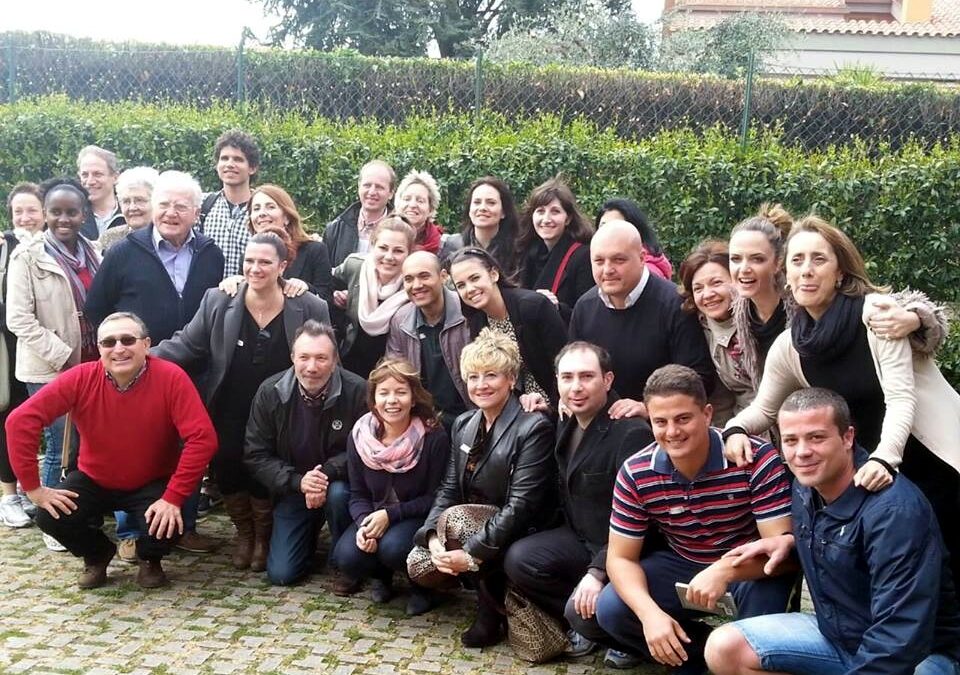
Mar 17, 2016 | Focolare Worldwide, Senza categoria
 “I started to give a hand, Annette, a German Focolarina recounts, “in December 2014. The cold had already set in and there was urgent need for blankets. In trying to find out more, a member of the RomAmoR ONLUS proposed: “More than blankets we need you to come and give us a hand.” The week after I was already at the Ostia station. It was a really moving experience. On approaching those people I discovered that oddly enough, they were the ones to welcome me! I realised that this is not an uncomfortable category of people to avoid, but persons who wish to relate with others, and are capable of imbuing human warmth. After a while also the volunteers came with a hot dinner and the anonymous, cold and bleak station, warmed up. ” Annette has changed since then. The first nights she couldn’t sleep thinking of Giovanni, Stefan, Mohamed who did not have a warm bed like hers. She started to review her wardrobe, to see if there was still something else she could share, despite the fact that in the Focolare community already tries to live only with the essentials. But above all, she continued going to the station every Monday. One evening, looking at the notebook that listed the requests of the homeless, she saw that a man needed a pair of shoes. Since there were none in the house she remembered Chiara Lubich’s experience during the war, when she asked Jesus present in the poor, for a pair of shoes. “So I did the same thing and in two weeks ten pairs of shoes arrived!”
“I started to give a hand, Annette, a German Focolarina recounts, “in December 2014. The cold had already set in and there was urgent need for blankets. In trying to find out more, a member of the RomAmoR ONLUS proposed: “More than blankets we need you to come and give us a hand.” The week after I was already at the Ostia station. It was a really moving experience. On approaching those people I discovered that oddly enough, they were the ones to welcome me! I realised that this is not an uncomfortable category of people to avoid, but persons who wish to relate with others, and are capable of imbuing human warmth. After a while also the volunteers came with a hot dinner and the anonymous, cold and bleak station, warmed up. ” Annette has changed since then. The first nights she couldn’t sleep thinking of Giovanni, Stefan, Mohamed who did not have a warm bed like hers. She started to review her wardrobe, to see if there was still something else she could share, despite the fact that in the Focolare community already tries to live only with the essentials. But above all, she continued going to the station every Monday. One evening, looking at the notebook that listed the requests of the homeless, she saw that a man needed a pair of shoes. Since there were none in the house she remembered Chiara Lubich’s experience during the war, when she asked Jesus present in the poor, for a pair of shoes. “So I did the same thing and in two weeks ten pairs of shoes arrived!”
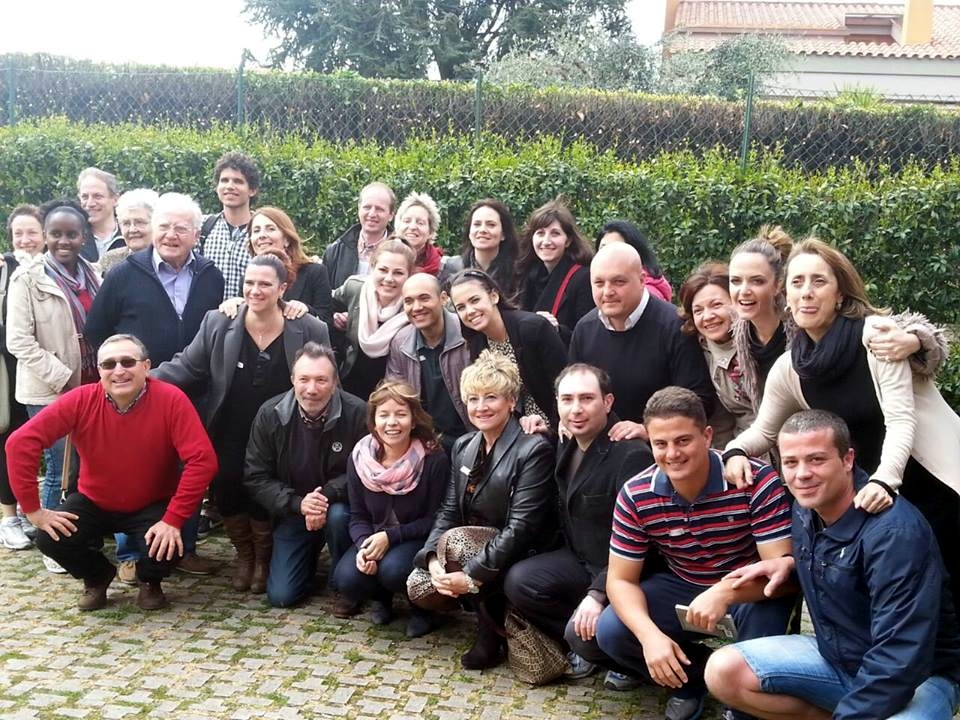
Photo © Dino Impagliazzo
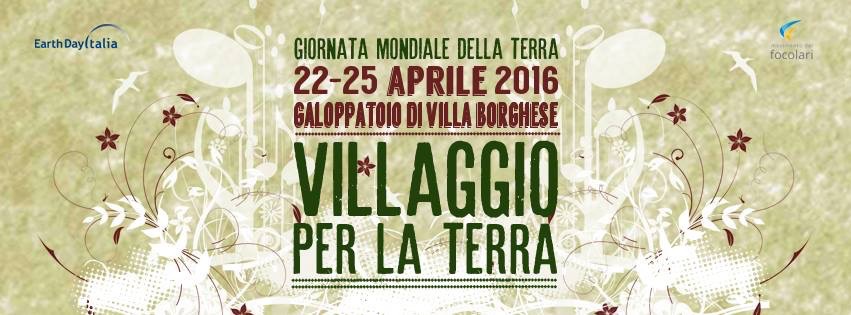
Mar 16, 2016 | Non categorizzato
 An event entitled, “Earth Village. Living the City Together. Rome in Mariapolis,” will take place in the heart of Italy’s capital in the parks and gardens of Villa Borghese. The event is sponsored by Earth Day Italia and the Focolare Movement of Rome. The celebration of the 46th edition of the international Earth Day will inaugurate the event, which this year assumes greater relevance as UN Secretary General Ban Ki-Moon has chosen April 22nd as the date on which the historic Paris Agreement on climate, COP21, officially opens for signing, with the participation of nations worldwide. In light of the Encyclical Laudato Si’, in which Pope Francis invites everyone to care for our common home, and in the context of the Jubilee of Mercy, “Earth Village – Rome in Mariapolis” aims to rediscover Rome’s unique vocation of universal brotherhood. The idea is to create a temporary village within the city, with the involvement of numerous initiatives which daily work to make the capital a better place in which to live, where each citizen or tourist, no matter their age, social class or culture, can experience their own irreplaceable contribution to the life of the city. The goal of the event is to create bridges of dialogue among diversities—center and periphery, young people and adults, Romans and citizens “in transit”— to demonstrate the innumerable social initiatives in favour of the human person present in Rome, because finding common ground amidst diversity is possible, and solidarity is a universal value. Living the City Together will unfold throughout four days of activities—workshops, laboratories, seminars, exchanges of good practice, artistic performances, debates, games, reflections or simply sharing of time and experiences—all geared towards increasing mutual respect, knowledge, and acceptance. For more information about the event: www.villaggioperlaterra.it
An event entitled, “Earth Village. Living the City Together. Rome in Mariapolis,” will take place in the heart of Italy’s capital in the parks and gardens of Villa Borghese. The event is sponsored by Earth Day Italia and the Focolare Movement of Rome. The celebration of the 46th edition of the international Earth Day will inaugurate the event, which this year assumes greater relevance as UN Secretary General Ban Ki-Moon has chosen April 22nd as the date on which the historic Paris Agreement on climate, COP21, officially opens for signing, with the participation of nations worldwide. In light of the Encyclical Laudato Si’, in which Pope Francis invites everyone to care for our common home, and in the context of the Jubilee of Mercy, “Earth Village – Rome in Mariapolis” aims to rediscover Rome’s unique vocation of universal brotherhood. The idea is to create a temporary village within the city, with the involvement of numerous initiatives which daily work to make the capital a better place in which to live, where each citizen or tourist, no matter their age, social class or culture, can experience their own irreplaceable contribution to the life of the city. The goal of the event is to create bridges of dialogue among diversities—center and periphery, young people and adults, Romans and citizens “in transit”— to demonstrate the innumerable social initiatives in favour of the human person present in Rome, because finding common ground amidst diversity is possible, and solidarity is a universal value. Living the City Together will unfold throughout four days of activities—workshops, laboratories, seminars, exchanges of good practice, artistic performances, debates, games, reflections or simply sharing of time and experiences—all geared towards increasing mutual respect, knowledge, and acceptance. For more information about the event: www.villaggioperlaterra.it
Mar 16, 2016 | Focolare Worldwide, Senza categoria
“This soiree should have been held here three months ago. Instead, the folly of men changed our direction.” These were the opening words of Noufissa Boulif, Muslim, organiser of the event: after the attack in Paris on 13 November 2015, Brussels lost its identity. This is where some of the terrorists involved were based, and for security reasons the concert had been cancelled and moved to 20 February 2016. The encounter between music, and Muslim and Christian cultures, became a platform for the encounter between Muslims, Christians and also agnostics who believe in dialogue and who, knowing they were welcome, were able to receive the others and discover their hidden qualities and values. But wasn’t it highly risky, for an Islamic-Christian event right in the heart of Brussels? We asked Noufissa.”If the concert was able to go through, it was thanks to the incredible solidarity between Muslims and Christians, and certainly due to divine protection. Luckily the entire programme came about without accidents or tensions.” The concert was dedicated to all the children who suffer, giving the soiree the theme «of children and the youth, but also under the auspices of diversity which characterises our country.» For more than 20 years, Noufissa has known and lived Chiara Lubich’s spirituality of unity. She wants to testify before all that fraternity between Christians and Muslims, often antagonists, is possible. In this perspective she organized the first Islam-Christina concert in October 2014. https://vimeo.com/114676421 “I have been working on it for a long time”, Noufissa recounted. “Together with my husband and children, we are involved in interreligious dialogue, which has by now become part of my life. For me, as a Muslim wearing a veil, living in harmony with others is not to be taken for granted, because I feel that people look at you with curiosity or evident signs of diffidence. But every time, I try to approach them without prejudice, and with a smile. The Golden Rule which all great religions advocate, helps me a lot. “None of you really believes if you do not wish for your neighbor what you wish for yourself” (Mohammed, Hadith 13 de al-Nawawi). The islamophobic reactions and influence of the mass media are not always constructive or comprehensible, but the essential thing is to overcome them. The prophet, Mohammed, in a hadith stresses that “A smile is an alm” (meaning, a free gift for the other).” Going back to 20 February this year. Various choirs appeared on stage: children, youth, Christians and Muslims, blacks and whites. Speaking Neerlandish or French – also this is one of Belgium’s challenges, the participants were Rissala, the small choir singers, the voices of the dei 4 Horizons, and the ‘TOUCH,’ a group of disabled Muslim girls. Towards the end, also the rappers – Mc ‘Youns, and Antis et Mamz-I – with their incisive words, invited everyone not to give up, but to continue believing in life. The “light of the heart” association was formed after 25 years of Noufissa’s interreligious dialogues, and 10 years of the service of one of her Muslim friends involved in palliative treatments: together they visit the sick at their homes, trying to meet the thirst for relationships in their particular phases of life. With this association, after a year of hard work to prepare “Fraternity choir,” they are already working on a next Islam-Christian event to be held on 23 April entitled, “Together with Mary,” in the Saint Michel Cathedral in Brussels.
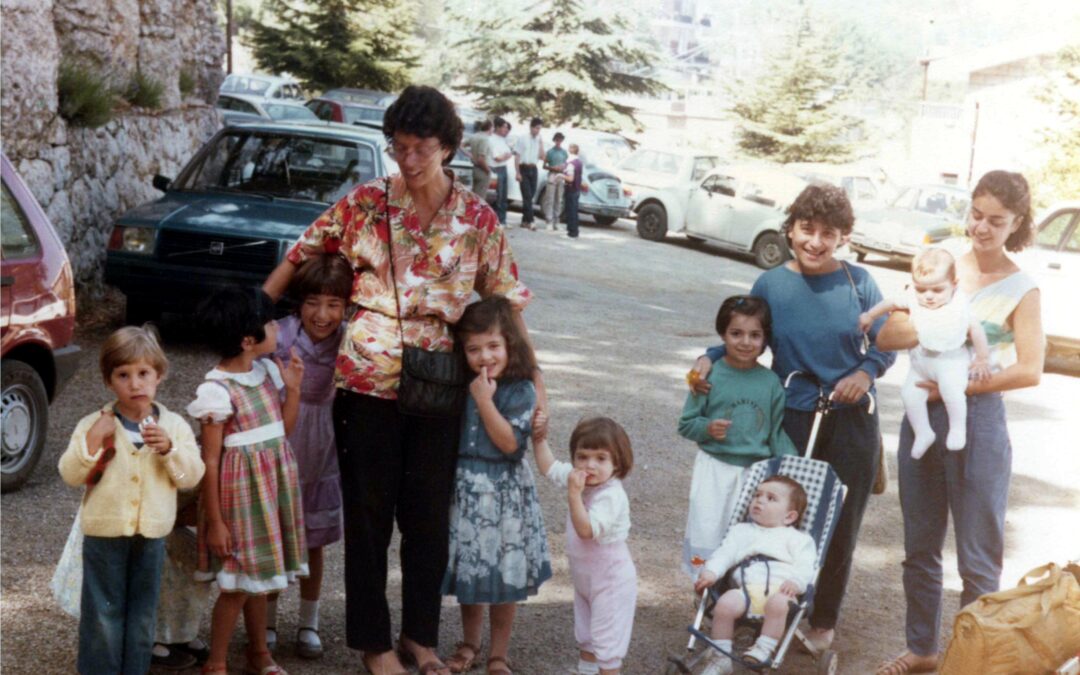
Mar 15, 2016 | Non categorizzato
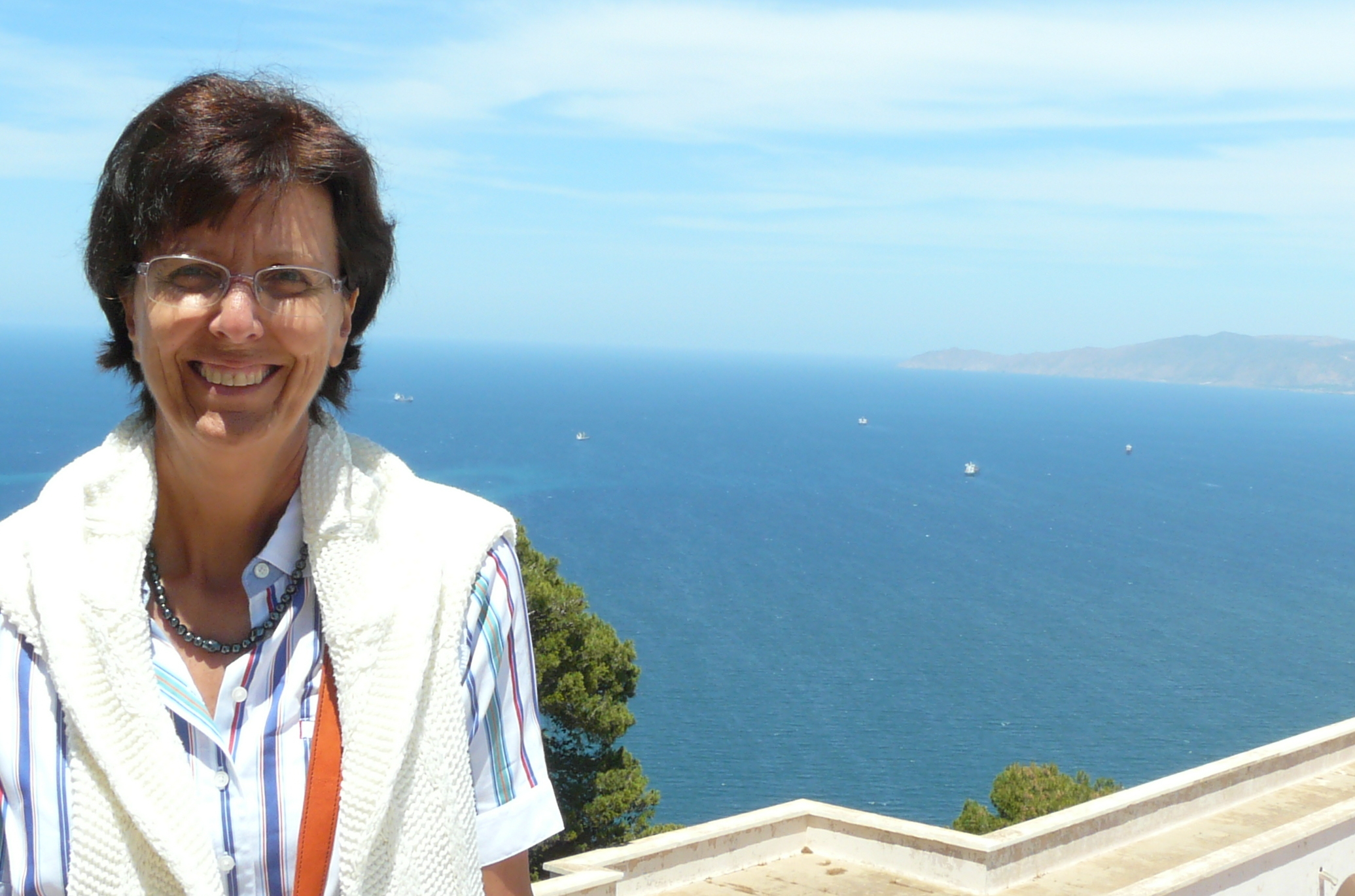 “I was 17 years old,” says Lebanese focolarina Nadine, “when the war broke out in Lebanon: schools closed, roads mined, bombings day and night, snipers, the dead and wounded. . . In the midst of the tragedies that had begun to enrage our country, me and some other young people that had been fascinated by the spirituality of Chiara Lubich heard those words from the early days of the Focolare echoing again: “Everything crumbles, only God remains.” Like Chiara and the first focolarine, we could have been dead from one moment to the next, and like them we wanted to present ourselves before God ‘having loved to the end’. We had learned that loving means being attentive to the needs of the people around us. It wasn’t so easy under such circumstances, but when we were able to do it our hearts were cleared of fear and we hardly noticed the storm of hatred and violence that surrounded us. Therefore we were able to help many people carry on. We often wrote to Chiara, to tell her how we were living and every time she wrote back personally” “I still remember the acts of violence and kidnappings when the religious discrimination began. My own father was kidnapped twice. Chiara spoke to us of the first Christians and their courage in giving witness to the faith even in the face of Roman persecution. One of our friends, Fouad, was able to attend a Gen convention Italy. During his return trip to Lebanon, while he was travelling on the road from the airport, Fouad was stopped by some armed men. It was a Muslim region and his documents showed that he was a Maronite Christian. “Yes, I’m Christian,” Fouad admitted. “I’m on my way home.” “You’re coming with us,” they told him. A long interrogation followed and the final sentence: “Do you understand what awaits you?” The boy understood that it was all over for him. One of the militiamen took him and led him towards a bridge where many other Christians had been killed. While they walked, he tried to calm himself and wondered what God might want of him in that moment. ‘Love this neighbour,’ came to his mind. So he tried to make that militiaman feel all his love: ‘It must be hard,’ Fouad said to him, ‘it must be hard to do this job, to make war.’ When they came within eyeshot of the bridge the militiaman stopped, looked at him and exclaimed: ‘Let’s go back’. I recall how moved Chiara was by the witness of this young man, so moved that she wanted this episode to be shared for the edification of the whole Movement.”
“I was 17 years old,” says Lebanese focolarina Nadine, “when the war broke out in Lebanon: schools closed, roads mined, bombings day and night, snipers, the dead and wounded. . . In the midst of the tragedies that had begun to enrage our country, me and some other young people that had been fascinated by the spirituality of Chiara Lubich heard those words from the early days of the Focolare echoing again: “Everything crumbles, only God remains.” Like Chiara and the first focolarine, we could have been dead from one moment to the next, and like them we wanted to present ourselves before God ‘having loved to the end’. We had learned that loving means being attentive to the needs of the people around us. It wasn’t so easy under such circumstances, but when we were able to do it our hearts were cleared of fear and we hardly noticed the storm of hatred and violence that surrounded us. Therefore we were able to help many people carry on. We often wrote to Chiara, to tell her how we were living and every time she wrote back personally” “I still remember the acts of violence and kidnappings when the religious discrimination began. My own father was kidnapped twice. Chiara spoke to us of the first Christians and their courage in giving witness to the faith even in the face of Roman persecution. One of our friends, Fouad, was able to attend a Gen convention Italy. During his return trip to Lebanon, while he was travelling on the road from the airport, Fouad was stopped by some armed men. It was a Muslim region and his documents showed that he was a Maronite Christian. “Yes, I’m Christian,” Fouad admitted. “I’m on my way home.” “You’re coming with us,” they told him. A long interrogation followed and the final sentence: “Do you understand what awaits you?” The boy understood that it was all over for him. One of the militiamen took him and led him towards a bridge where many other Christians had been killed. While they walked, he tried to calm himself and wondered what God might want of him in that moment. ‘Love this neighbour,’ came to his mind. So he tried to make that militiaman feel all his love: ‘It must be hard,’ Fouad said to him, ‘it must be hard to do this job, to make war.’ When they came within eyeshot of the bridge the militiaman stopped, looked at him and exclaimed: ‘Let’s go back’. I recall how moved Chiara was by the witness of this young man, so moved that she wanted this episode to be shared for the edification of the whole Movement.” 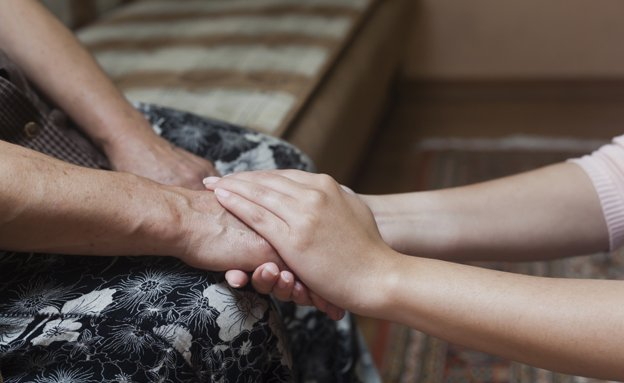 “At every ceasefire we’d gather together to visit the focolare. . . Our parents were fearful for us, but we couldn’t stop ourselves. Forging unity with one another was the life force that sent us forth to love everyone. It was precisely during those years of war that many of us felt the call to consecrate our lives to God. Chiara supported us with her example, with her words. With love, she kept track of the families that were being sorely tried by the restricitons and tiredness. . . Several had lost their jobs, their houses. Others had been living in air-raid shelters for years and wanted to leave the country so that their children could have a future, several of whom were wounded. . . For each one of these families, Chiara opened the homes of the Movement to provide them a place to go and recover or to settle down permanently. She also launched a fundraising campaign to cover the costs of the journey. Since the airport of Beirut had been closed for years, she sent us focolarine to open a focolare in Cyprus – the only way out by sea – to assist those who were leaving the country.”
“At every ceasefire we’d gather together to visit the focolare. . . Our parents were fearful for us, but we couldn’t stop ourselves. Forging unity with one another was the life force that sent us forth to love everyone. It was precisely during those years of war that many of us felt the call to consecrate our lives to God. Chiara supported us with her example, with her words. With love, she kept track of the families that were being sorely tried by the restricitons and tiredness. . . Several had lost their jobs, their houses. Others had been living in air-raid shelters for years and wanted to leave the country so that their children could have a future, several of whom were wounded. . . For each one of these families, Chiara opened the homes of the Movement to provide them a place to go and recover or to settle down permanently. She also launched a fundraising campaign to cover the costs of the journey. Since the airport of Beirut had been closed for years, she sent us focolarine to open a focolare in Cyprus – the only way out by sea – to assist those who were leaving the country.” 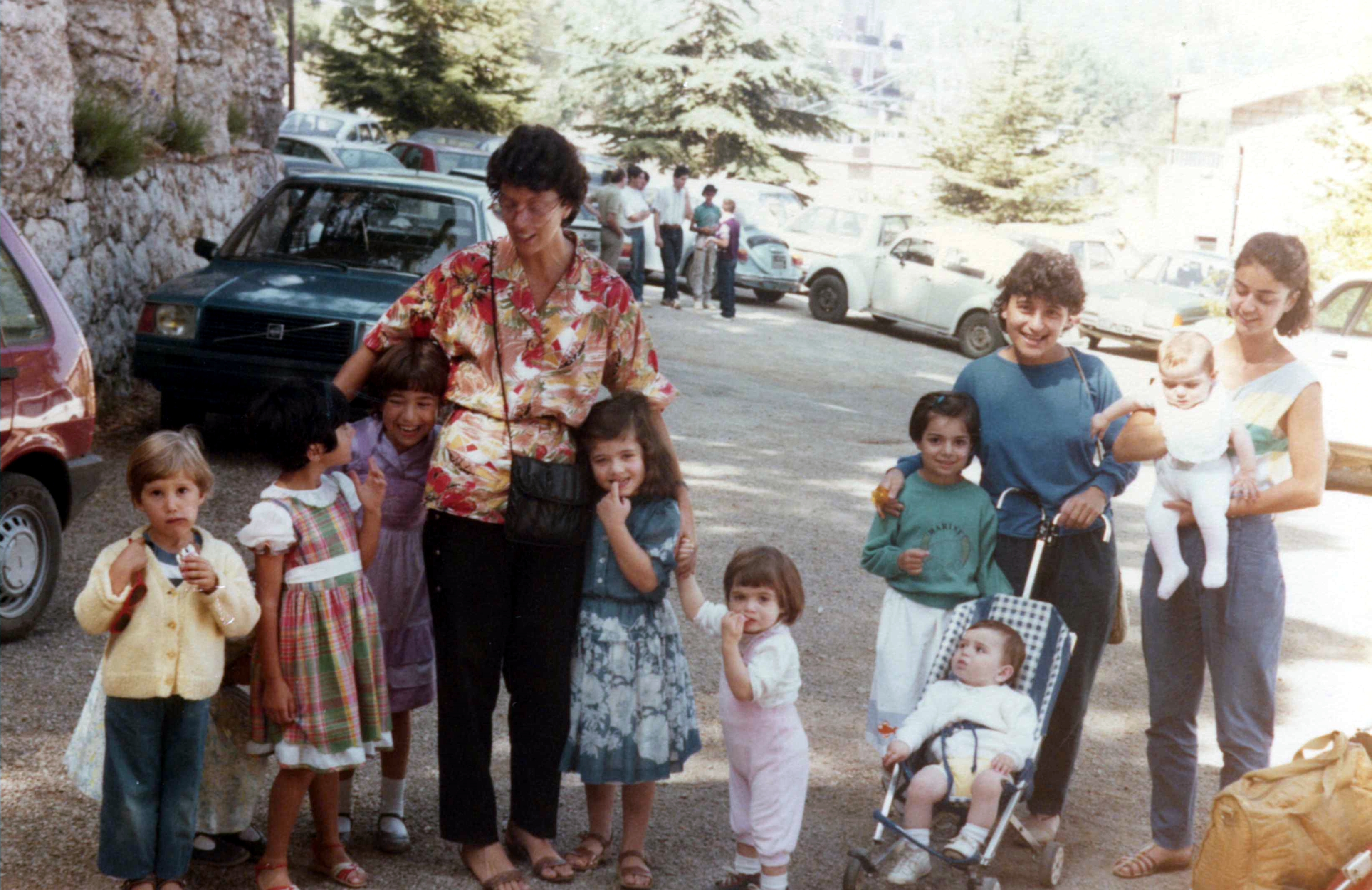 “Chiara’s concrete love was always accompanied by her powerful spiritual encouragements. After years of living life to the extreme we often felt weak, tired and helpless. So Chiara reminded us of that ‘little cloud’ a new sign with which God had made himself present to the Jewish people in the desert when they were suffering through an absurd war, and she suggested that we go ahead in living the Word in a totally new way. And from that ‘little cloud’,” she went on to tell us, “not only will you draw many others into living the Gospel, but you’ll draw out the strength you need to continue loving. . .all the way to the end.”
“Chiara’s concrete love was always accompanied by her powerful spiritual encouragements. After years of living life to the extreme we often felt weak, tired and helpless. So Chiara reminded us of that ‘little cloud’ a new sign with which God had made himself present to the Jewish people in the desert when they were suffering through an absurd war, and she suggested that we go ahead in living the Word in a totally new way. And from that ‘little cloud’,” she went on to tell us, “not only will you draw many others into living the Gospel, but you’ll draw out the strength you need to continue loving. . .all the way to the end.”
Mar 14, 2016 | Focolare Worldwide
Mar 14, 2016 | Focolare Worldwide
 “What we wish to do today is not so much remember as to review together, after 20 years, the content and method which Chiara outlined at UNESCO on the 17th December 1996 on a subject which is more than ever relevant to international relations, education for peace. On that occasion UNESCO conferred on the founder of the Focolare Movement a special prize awarded to those whose work contributes to creating pathways and conditions whereby peace may become something real.” Maria Voce, the President of the Focolare, recalled that event in her talk given on 12th March at Castel Gandolfo, during the afternoon dedicated to Chiara Lubich and peace, in the presence of ambassadors and leading figures in the worlds of culture and Christian unity. “Looking at that occasion again today, it seems more than ever relevant: what could be more important than education to reach this kind of goal? Current affairs, what we see before us day after day, portray images of a peace that has been violated and often scorned. It seems almost as though, from the daily life of individuals right up to international level, “living in peace” is not part of what the generations living in the Third Millennium do. Yet how often do we appeal for peace or try to reconnect the broken strands of relationships among individuals, peoples and states? We cannot deny that we find it easier to put up barriers, perhaps thinking we are defending ourselves, instead of working to build unity in relations, among ideas, in politics, in economics and between religious viewpoints. Hence peace escapes us and is ever more distant. At UNESCO Headquarters, Chiara Lubich put forward a method for education to peace, the spirituality of unity, which is a new lifestyle that can overcome divisions among individuals, communities and peoples and so can help restore or consolidate peace.
“What we wish to do today is not so much remember as to review together, after 20 years, the content and method which Chiara outlined at UNESCO on the 17th December 1996 on a subject which is more than ever relevant to international relations, education for peace. On that occasion UNESCO conferred on the founder of the Focolare Movement a special prize awarded to those whose work contributes to creating pathways and conditions whereby peace may become something real.” Maria Voce, the President of the Focolare, recalled that event in her talk given on 12th March at Castel Gandolfo, during the afternoon dedicated to Chiara Lubich and peace, in the presence of ambassadors and leading figures in the worlds of culture and Christian unity. “Looking at that occasion again today, it seems more than ever relevant: what could be more important than education to reach this kind of goal? Current affairs, what we see before us day after day, portray images of a peace that has been violated and often scorned. It seems almost as though, from the daily life of individuals right up to international level, “living in peace” is not part of what the generations living in the Third Millennium do. Yet how often do we appeal for peace or try to reconnect the broken strands of relationships among individuals, peoples and states? We cannot deny that we find it easier to put up barriers, perhaps thinking we are defending ourselves, instead of working to build unity in relations, among ideas, in politics, in economics and between religious viewpoints. Hence peace escapes us and is ever more distant. At UNESCO Headquarters, Chiara Lubich put forward a method for education to peace, the spirituality of unity, which is a new lifestyle that can overcome divisions among individuals, communities and peoples and so can help restore or consolidate peace. This spirituality is lived by people from very different backgrounds and experiences: Christians of different Churches, believers of different religions and people of different cultures. All of them are motivated by wanting to enable humankind become one single family; all know they must face problems and situations that arise daily at every level and in every field; all are directed towards being – at least wherever they are – and I quote Chiara “seeds of a new people, of a world at peace, with greater solidarity especially towards the least and the poorest; to be seeds of a more united world” (Chiara Lubich’s talk at UNESCO, 17.12.1996) in which it will be possible not only to call one another brothers and sisters but truly be so. If this is the method, what is the secret of its success? It is a secret which Chiara herself defined as the art of loving, which is “It means being the first to love, without expecting the other person to love us in return. It means knowing how to ‘make ourselves one’ with others, that is, to identify with their burdens, their thoughts, their sufferings, their joys. But, if this love of neighbour is lived out by more than one person, it becomes mutual. (Ibid.). Reciprocity: it is a word which carries much weight in international relations but is often limited to ensuring a truce in conflicts, not in preventing them or resolving them. Those who have responsibility and key roles in the international community know very well how difficult negotiations can be and how many obstacles are encountered before reaching agreements that satisfy all parties. To consider love as a negotiating tool in regard to the great objective of peace would allow us to feel part of one family, to live an authentic dimension of fraternity without restricting it merely to coexistence or forced shared living, but enabling fraternity to be open to the needs of the weakest and the poorest, of those who are excluded from political engagement or from a type of economics whose only law is profit. We need to love, then, and work for others and with others; so as to help overcome the barriers posed by conflicting interests, by a show of power, by inequality in levels of development, or lack of access to the market or technology. When speaking about peace education we find ourselves facing the great challenge of applying a method, that of unity as the fruit of mutual love, in the fragmented context currently enveloping almost all spheres of our daily life. Chiara Lubich was aware of this and for this reason offered the Representatives of Member States at UNESCO almost the key for a step change, a good practice, in the language used in international relations. In fact she said: «Nothing good, useful, or fruitful can be accomplished in the world without accepting troubles, suffering, in a word, without the cross.” (Ibid.). Commitment to peace is difficult to achieve if we are not ready to set aside our certainties and our comfort, so as to set out on new and unexplored paths; becoming creative without improvising; hearing to the voices of those who call for peace and identifying places where it can actually be achieved. … Twenty years ago, speaking at UNESCO, Chiara pointed out that love was “the most powerful instrument that can give humanity its highest dignity: that of feeling not so much that we are a collection of peoples, alongside one another and often in conflict with one another, but instead that we are one single people.” Today too even though we face many recurring difficulties, this is the ideal we wish to achieve through everyone’s contribution.”















